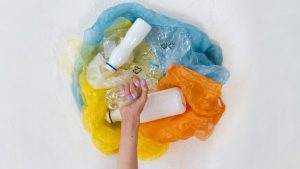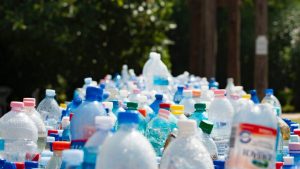Why should I care?
Many ask this question, when they feel the urge to choose eco-friendly options over their comfort. The truth is that we tend to associate the environment conscious alternatives with rather negative adjectives, like expensive, slow and problematic. What if we approach this problem from a psychological point of view to understand our ‘laziness’? Generally speaking, most people do not like to change. We feel comfortable doing what we have always been doing, and by nature, we are more likely to prioritise security in contrast to the unknown. However, forgetting the assumed good outcome of a change can prove to be a terrible mistake. In case of trying new methods in your everyday routine, you might come across such options, which will make you laugh at your own suspicious self after realizing, that it would have been worth to change earlier. Is the solid shampoo bar efficient for my hair? Does the eco-friendly stainless steel razor really work the same? You will never know until you try it!

Trying new, environmentally friendly products, and switching permanently to these alternatives can be challenging, and you might be held back by their price. Not surprisingly. In the modern world, which strives from the advantages of globalization, the consumer is used to cheap food, cheap products, and continuous availability. If something is not working anymore, we don’t hesitate to throw it, and buy a new product, rather than thinking about repairing it. However, consumers are not the only ones to blame in the linear, accelerated economy. On the other end of the production chain, in the chairs of multinational companies, employees work for profit maximization. To reach this goal, the environmentally friendly ways of production, sustainable use of natural resources is rarely considered to the needed extent. In most cases, the idea of producing long-lasting quality has been overwritten by the sale in large-scale quantity. Although in most cases ‘the-more-the better’ ideology rules when it comes to measuring company success, we should not forget about the rise of start-ups, private enterprises, which target a new customer segment: those, who want to lead an eco-friendly life. Terms like vegan, cruelty-free, zero waste, started to nest in the customers’ minds. By building awareness and promoting the meaning of these phrases we should hope, that the trust in environmentally friendly products, the number of conscious buyers, and the popularity of this new trend will exponentially rise over time.
We all find sea-turtles, polar bears, pandas, fennec foxes lovely and amazing animals. We also know that they are endangered species, being on the edge of extinction. Being an average person, we do not normally relate to these world-wide problems on a personal level, because we don’t see the effect of our everyday choices as members of the consumer society. If I choose to bring my canvas shopping bag, use my own bamboo or metal utensils in fast food restaurants, wrap my sandwiches in beeswax cloth, etc. – at the end of the day I can still read about the endangered biodiversity, rainforest destruction, poaching, forest wildfires. Naturally, we, alone will not be enough to change the linear economy model. As conscious buyers, we can determine our consumption priorities to a certain extent, but efforts should be made from both the demand and supply side of the economy. A different approach from managers, changed mindset of CEOs will be required to bring change on a world-wide scale. Sustainability, playing according to the rules of circular economy have to be included in the mission and vision statement of all companies. Although we cannot undo the effects of industrialization and globalization, it is solely our responsibility to change.

Circular economy is based on recycling, the waste of now will eventually be reused as the raw material of future. For example, waste glass is used to make new glass and waste paper is used to make new paper. To ensure that in the future there are enough raw materials for food, shelter, heating and other necessities, our economy must become circular. That means preventing waste by making products and materials more efficiently and reusing them. If new raw materials are needed, they must be obtained sustainably so that the natural and human environment is not damaged. In a circular economy, manufacturers design products to be reusable. For example, electrical devices are designed in such a way that they are easier to repair.
Whether you are the boss of a company, a nature lover, a future engineer, a taxi-driver, an economist, a father or a mother – regardless of your position or role in life, you are human. You have a beautiful mind to think about innovative methods, to take a small step every day towards an eco-friendly lifestyle, to inspire others, to share your nature loving passion with your family and friends, to act out of your comfort zone and to overcome your fear of change…
That’s why, you should care.
Photos: pexels.com
